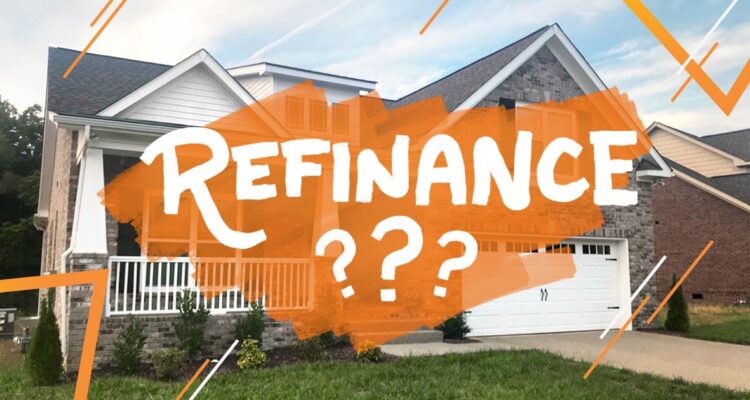A mortgage is one of the most significant decisions and financial burdens someone can go through. However, we go into them with the best intentions of paying them off in time and sticking to the payment set out for us, life changes! Our credit scores shift and flex, what’s important to us in life may change, and we may find ourselves considering refinancing our mortgage.

When’s the right time to do this? What does it even mean to refinance? There are dozens of questions any homeowner may have about this process, and together we’ll work to answer most of them!
What is Refinancing a Mortgage?
The ten or thirty-year agreement you made with your lender is a big deal- and should be taken seriously. Refinancing this deal is a decision you have to take seriously as well. When you refinance your mortgage, you’re buying off your debt in exchange for new debt. You still owe all of the money, and possibly more, but the contract is unique, and changes can be made to it.

What Changes Come Through Refinancing?
If your credit score used to sit at around 570, your interest rate is probably pretty high when you bought your home. Banks use this higher interest rate to balance the risk of lending someone a ton of money when they can’t be sure they’ll get it back as planned. Over time, through making house payments on time and working on your credit hands-on, you may have gained enough points to be in the upper 700 for credit score. This choice is a giant leap and should be celebrated! Unfortunately, your bank doesn’t automatically refinance your interest based on your new credit score.
Refinancing fixes your interest rate so that you’re not paying undue amounts of money for a credit score you no longer have. You worked hard on your credit and shouldn’t get punished for that.
Any Large Life Changes?
Another reason someone might refinance their mortgage is if there are any massive life changes. A homeowner may have purchased a property when they were single but eventually got married and can suddenly afford larger payments with their spouse’s added income. This choice could mean shortening your mortgage so that you’re only paying for it for ten years instead of thirty, or it could mean lowering your interest rate further. It would help if you used a house payment calculator to go over each of your options.
Property Value Changes
Has your property’s value skyrocketed? A great idea, then, is to refinance so that you can sell your home faster and receive the full payment for it. This plan means trying to lower your interest rate so you can get the most bang for your buck and paying off your loan in half of the time previously planned.
The best thing you can do for your mortgage is to make steady payments on time and send in more than necessary so that you don’t have to lose out by paying over in interest. Your home will go up in value, and refinancing isn’t always the best choice- but it’s a great option to consider.

